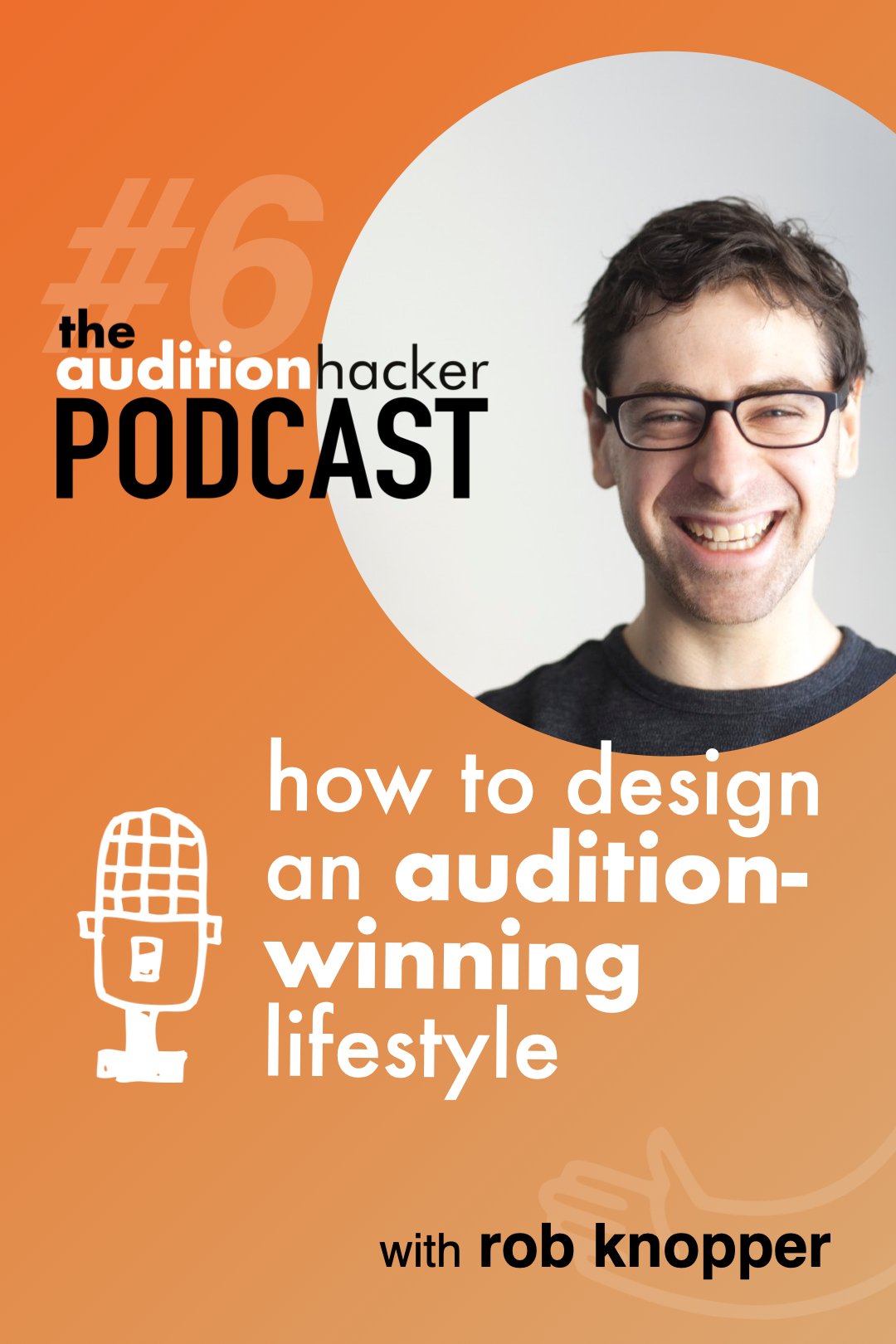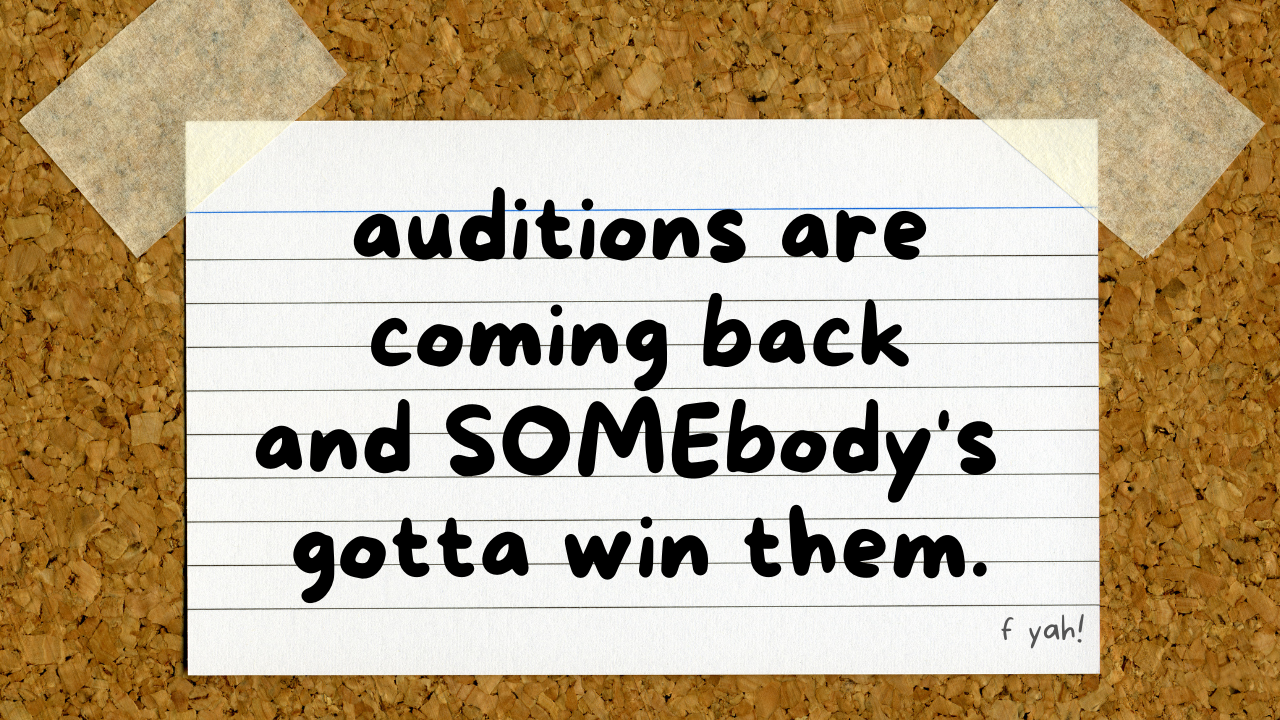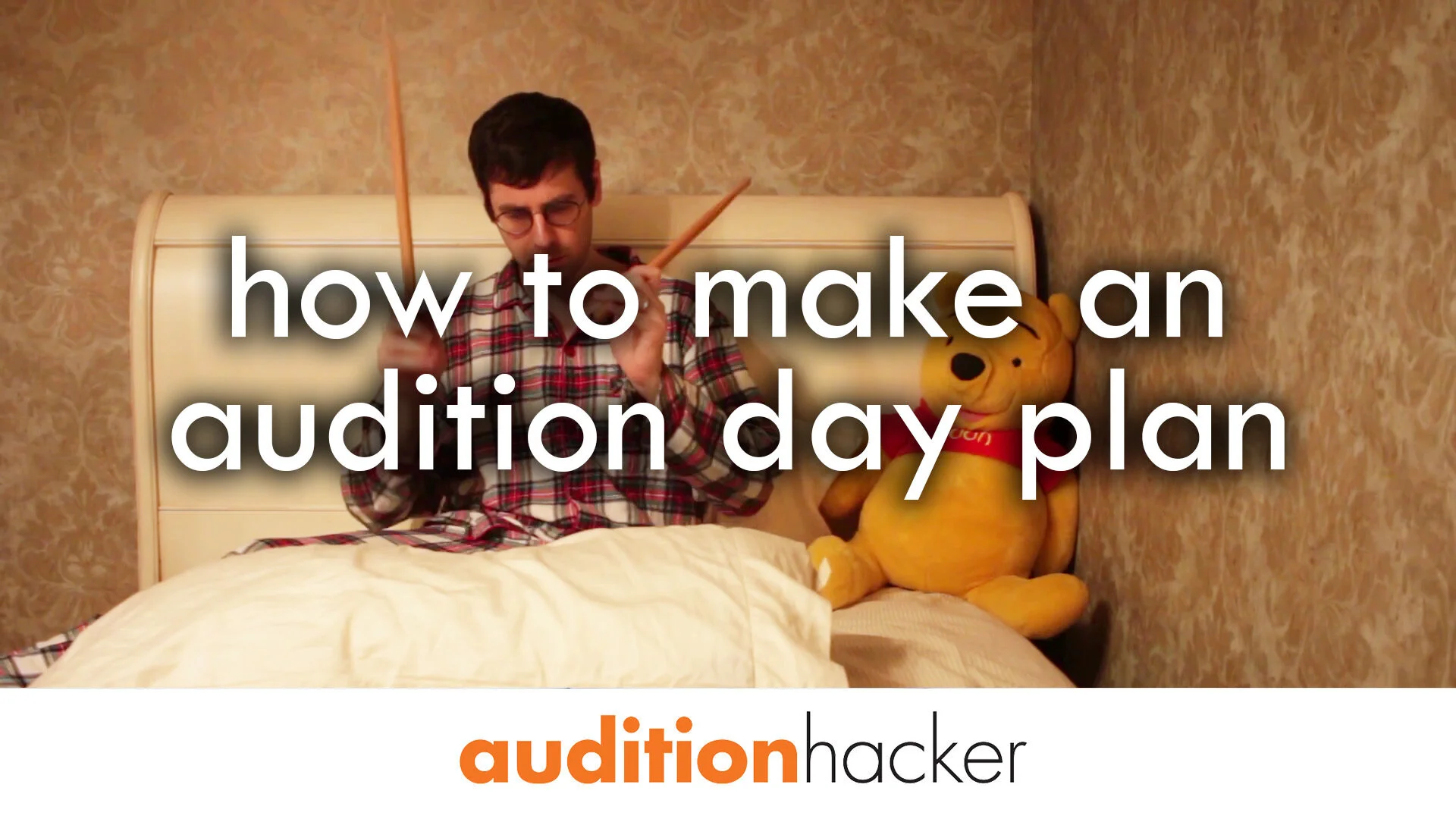i love people who don’t do mock auditions...as long as they aren’t my students.
it’s almost like they're saying, “yes, i’m willing to spend 15 years learning my instrument from an early age. i’m more than happy to pay for years of private lessons, youth orchestra fees, and college tuition. i’ll definitely practice 8 hours a day, and hell, i’ll pay $1000 to travel to fort worth (or wherever) to take an audition. but doing a mock audition in front of someone? that’s just a littttttttttle outside of my comfort zone. too embarrasing. nope, not gonna do it.”
!!!!!!!!!!!!
seriously, i love going to an audition knowing that a good 70-80% of people haven’t done enough mock auditions. those people are simply not going to be ready to play when they step into the audition room.
and since today is the final day of early enrollment for rob and noa’s summer audition boot camp, i want to lay out a couple ways you can gain a simple advantage over the competition at your next audition.
#1: do tons of realistic mock auditions
#2: do lots of detailed self-recording
for real though. noa kageyama and i are teaching an 8-week summer audition boot camp and we would love to work with you through an entire audition preparation process, beginning to end. you’ll learn how to organize your practice, defeat nerves, and bring the most detailed, perfected, confident performance to the audition that’s possible.
you can get the $50 discount as long as you sign up today before midnight, new york time, by using the code earlyenroll at checkout.
interested in the auditionhacker formula summer boot camp with rob knopper and noa kageyama?
click below to learn more!
#1: people don’t do enough REALISTIC mock auditions.
what people don’t get, i think, is that playing an excerpt in a performance situation changes your excerpt dramatically. you have nerves, you have a different sense of awareness, the room feels different. and every little bit of difference will affect the tiniest details in your excerpts, from tempo to pitch to accuracy to rhythmic placement to how much you focus on musicality.
i’m not saying you should go do mock auditions because you’re going to completely eradicate the nerves after a certain number of mock auditions or that it’s going to suddenly feel easy.
no…the thing is that at the audition, the judges are going to be listening to your performance version of the excerpts, not your practice room version. so when you’re working on it in the practice room, you’re hoping that it transfers to the performance, but you don’t actually know if it’s going to. you have to practice…..performing. and when you’re making adjustments and fixing issues, you should be doing that work TO the performance version.
the only way you can access the performance version to know how it sounds is to do mock auditions and put yourself is a realistic performance situation. over and over and over. then your fixes will apply to the performance because you’ve been working on the right version.
there are so many other benefits to mock auditions that you would only find out if you did a ton of them. i do 6 weeks of daily mocks before an audition before i start to feel like i’m comfortable in the routine of the audition performance.
as soon as people figure this out, this won’t be a competitive advantage. but for now, you’ll still be in a tiny subset of highly prepared applicants at the audition if you do do it.
#2: people get fed up with self-recording and quit.
recording yourself is not just playing something, listening to the recording, and making a few changes. self-recording is doing that process over and over and over until there are absolutely no problems left. self-recording is just the activity. problem-solving is the effective process that’s happening, and self-recording forces you to do even better problem-solving.
when i self record, i do it to a small section of music - a line or two or even a single measure at a time. the smaller the section of music, the more details i can deal with at once. i’ll play, listen back, write out a list of problems that i hear with it, and then one by one i’ll test out possible solutions that can fix each one of those problems until they are all fixed. the hard part is that once you fix a problem, it opens up your ears to even more details and 5 more problems come up. this is what annoys most people to the point of saying “wow, this must not be working,” and quit.
but this is where you can take your excerpt from sounding like a good student to sounding like a polished professional. if you PUSH THROUGH the “pain” and cycle through the self-recording workflow over and over and over and don’t give up on a problem until you find a solution, then your excerpt will end up sounding more musically balanced, more objectively precise, and more confident than if you didn’t self-record.
and this is just another thing that, at the highest levels of professional auditioning, people DON’T DO enough of. it’s what essentially disqualifies 70-80% of people taking an audition.
so if you want to step into that 20-30% of people who will get to the semi-finals or even the finals, these are two things you can install into your audition prep right away to make it more likely.
remember…audition preparation is just like an assembly line for your excerpts.
you get the repertoire, and you send that music down an assembly line. each excerpt stops at different stations along the way - researching and listening to recordings, muscle-memorizing the notes, self-recording, mock auditions, etc. you choose what processes the excerpts go through, and then you show up at the audition.
why not install the processes that i developed to win my auditions for the new world symphony and the met orchestra auditions? these processes have been used by auditionhacker students to win auditions over and over. strings, woodwinds, brass, percussion, and even harpists have won auditions using the system that noa kageyama, aka author of the bulletproof musician blog, and i are teaching in this summer’s boot camp.
the class starts on may 31st, and you have until tonight at midnight to take advantage of the early enrollment discount. use the code earlyenroll at checkout.
best,
-rob
p.s. in case you’re wondering, I’M DONE MOVING. well, if you call having a new apartment that is absolutely filled with random crap from my old apartment all over the floor “done,” then we’re done. thanks to everyone who emailed me with excellent moving advice; it was very helpful!
p.p.s. IT’S ALMOST SUMMER! ok bye















in 2019, a cellist named maria reached out to me about her audition struggles. on paper, she was the “worst audition candidate ever” (her words). she had 2 small children, a full-time teaching job, and hadn’t taken an audition in 4 years.